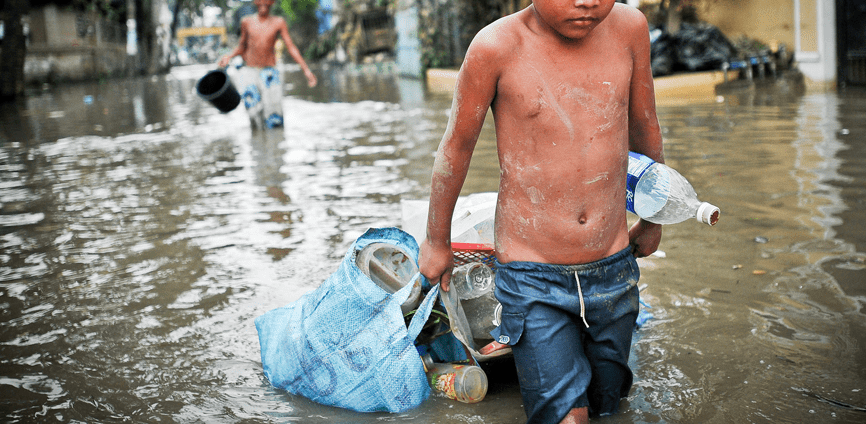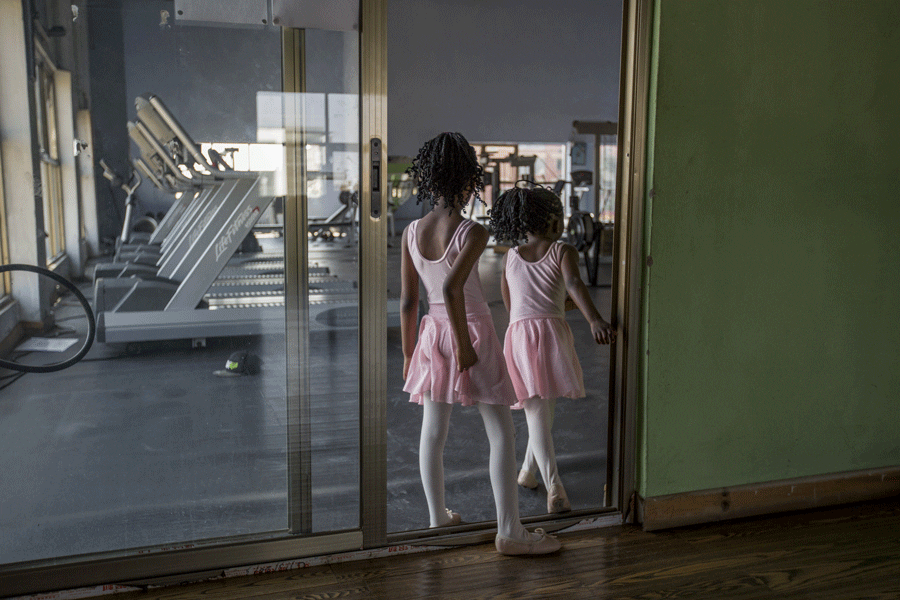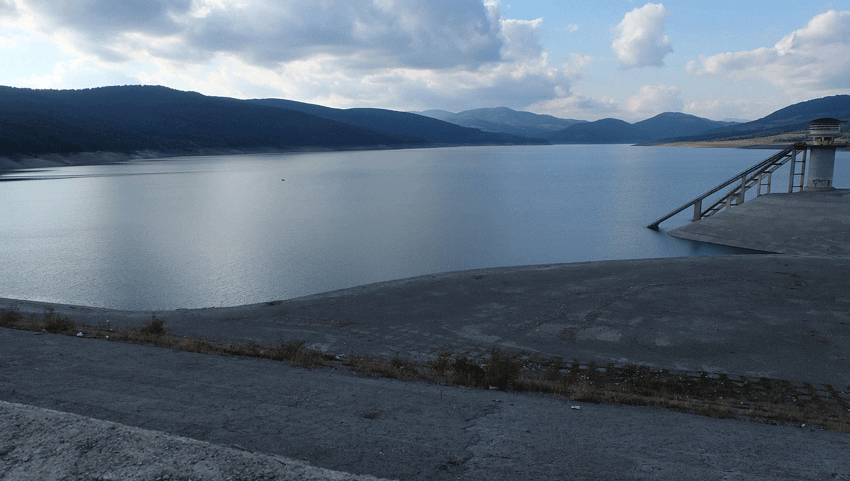BLOG
As the full extent of the damages from recent natural disasters are calculated across the Caribbean and the Southern United States and Lloyds of London begins paying out $4.5bn of claims, there is a stronger argument than ever to invest in natural capital as a way of improving resilience, Alex White finds.
In the UK, community health and wellbeing services are experiencing pressures of increasing need and resource constraints. A new CEEDR publication in Research Policy shows how social enterprises can develop innovative responses to help address the challenges faced.
To deliver climate justice we must focus on vulnerable people not countries, Marit Hammond and John Vogler write in this blog. As hurricanes engulf numerous countries at once, climate change powerfully illustrates the need for creative thinking about a truly global cosmopolitanism in which the avoidance of human suffering comes before self-interest.
Does consumerism thrive on our discontentment? Tim Jackson argues yes, the success of consumer society lies not in meeting our needs but in its spectacular ability to repeatedly disappoint us. This may seem dark, but from here we can understand why consumerism must eventually fall – and how to replace it.
The question of whether it is possible to live better by consuming less is a central one for CUSP. In order to answer this we need a rich understanding of the meanings that ‘stuff’ has in our lives. In this research log, Kate Burningham and colleagues offer insights into their analytical work in progress, summarising initial observations from a recent qualitative interview project with ten 18-22 year olds.
Rapid developments in technology and unpredictable economies are destabilising employment as we know it. What are the possible solutions? It’s not the demand for human labour that is disappearing, Tim Jackson argues, but the institutions and economics to deliver it.
One of the achievements of the recent Taylor review has been to breathe new life into the UK debate on good work. Going forward, this debate has to consider work in its wider social context, Simon Mair and Agni Dikaiou find; we have to think about Good Work not just as end in itself, but as a part of other systemic challenges.
Sustainable prosperity is underpinned by the principle that value creation and increased quality of life can both be decoupled from resource use – making the circular economy a key aspect. In this blog, CUSP research fellow Geraldine Brennan summarises some of her recent findings.
Dematerialisation of the economy – more value from each unit of ‘stuff’ – is a well-established trend in developed countries. Can food retailers and their supply chains accelerate this trend, CUSP co-investogator Charles Seaford asks, or will government have to intervene?
Stoke-On-Trent has set itself an ambitious task with its bid for UK City of Culture 2021. Should it be awarded the promising title then it will face a number of competing priorities and tensions, Jonathan Ward comments on the recent shortlisting, and the city should take it seriously.
The recently published climate risk recommendations by the Task Force on Climate-related Financial Disclosures (TCFD) have been met with high-level and cross-sectoral buy in. The UK government should take note, Alex White argues, and ensure to develop national reporting requirements in line with these best practices.
Solutions to climate change require good ol’ politics, Jana Bacevic argues. The attempt to avoid dealing with human(-made) Others is the key unresolved issue in an otherwise nice blend of theoretical conversation and science fiction that is Haraway’s Staying with the Trouble.
The social economy has many roles to play in tackling poverty, building inclusivity and promoting sustainability. Ian Vickers summarises recent findings that show its potential is not being fully realised in the UK, despite the opportunities provided by the devolution agenda in cities and other local areas.
In the second part of his essay on ‘Imagining a world beyond consumerism’ Jonathan Rowson is challenging the extraordinary tenacity of consumerism and alighting on the idea that in order to go beyond consumerism it might be necessary to improve what German Philosopher Metzinger calls “the present cognitive and emotional abilities of our species”.
When economies stop growing they go into crisis, yet it seems impossible for them to grow forever without causing ecological catastrophe. Tim Jackson joins Matthew Taylor on RSA Radio to talk about the about this big challenge and the impact of Prosperity without Growth – recently updated and expanded in a second edition.
Timothy Morton cares about the humans and things with which he co-exists, and doesn’t want to see them destroyed. But reading Hyperobjects: Philosophy and Ecology after the End of the World, Will Davies finds, it’s not entirely clear why. His version of environmental ethics is rather disquieting.
The new government will need to have an ambitious and stable low carbon policy at the heart of its project to support the UK’s competitiveness and deliver export opportunities for its businesses, argues Nick Molho, CUSP co-investigator and executive director of the Aldersgate Group.
The Breakthrough Institute asserts that ecomodernism can give us a “Good Anthropocene”. But in aiming at a second naivete of progressive modernism, it mistakenly treats nature as though it were a human creation.
Endless economic growth, long the rallying cry of the conventional paradigm, endangers our future. Ecological economist Tim Jackson, CUSP Director and author of Prosperity Without Growth, explores the need to envision a post-growth economy with Allen White, Senior Fellow at the Tellus Institute.
In his guest blog, Dan Bailey discusses the role and necessity of the welfare state in ensuring the democratic legitimacy of the transition to ‘sustainable prosperity’. He writes here about the welfare state in the context of prolonged austerity and the political revolts of the Trump vote and Brexit referendum, and in dialogue with different streams of work within CUSP.
As part of its involvement in CUSP, the Aldersgate Group is launching a one-year project to understand how to increase private investment in green infrastructure. In her blog, project lead Alex White explains how we will be looking at the most material barriers and considering the solutions to incentivise greater investment in the projects that will underpin the UK’s upcoming policy packages.
Consumerism is deeply problematic, but despite its obvious limitations, harms and absurdities, it is remarkably difficult to displace as our default societal setting and plot. Consumerism has become our prevailing cultural and economic modus operandi and is fundamentally more logical than it might at first appear.
Adventures in the Anthropocene—the fourth book discussed in the Anthropocene Reading Group—stands out from the others as the first that might be taken to the beach. Gaia Vince’s intrepid reportage has won her generous reviews. Yet, the journalistic and scientific objectivity—the twin lenses of her investigation—comes at a price, Robert Butler finds.
Bellamy Foster’s essay is to be warmly welcomed for putting the question of what constitutes ‘good work’ on the table. But by arguing – at least in parts – that good work looks like creative or artistic work, it risks perpetuating certain ideas about artistic production that will harm, rather than aid, the struggle for good work, Kate Oakley finds.
Documentary photographer and CUSP fellow Kerstin Hacker is investigating the developing consumer culture of Lusaka (Zambia) and examines photographically the emergence of a new cultural sector. Her project is set out to enable artists to participate meaningfully in the debate around sustainability and prosperity of the sector and the country as whole. In this blog she introduces her work.
John Bellamy Foster is right that we mustn’t abandon the project of pursuing non-alienating work, nor simply see work as a disutility. Yet, there is clearly space for articulating the importance of reduced, reproductive and redistributed work, Nick Taylor finds, and systems of social security that support these circumstances, as part of efforts to deliver democratic control over meaningful work.
This blog is a transcript of Mike’s contribution to the conference Sustainability in Turbulent Times on 16 March 2016, reflecting on the implications of recent swings towards populism and nationalism around the world, for the relationship between inequality, democracy and sustainability.
We are rarely encouraged to think of ourselves as good ancestors, but that’s what we need to become. After all, we represent the past the future relies on to have a viable present. If the idea of Utopia invites us to imagine the future, Jonathan Rowson argues, it is up to us to make a path towards that future discernible in the present.
On 1st of March at the UKSSD Annual Conference: Unlocking the UK’s potential: from ambition to transformation, CUSP Co-investigator and GSI Director, Professor Aled Jones, ran a CUSP/Sustainability East breakout session on ‘Devolution, Brexit and the SDGs’. Lauren Stabler summarising the workshop.
Roger Scruton’s paper usefully enlarges the scope of our discussions in CUSP, bringing a wider range of concepts to bear on the question of “sustainable prosperity”. However despite this wide scope, Victor Anderson argues, there is inherent in his arguments a philosophical justification for nimbyism.
Savings and investment represent a fundamentally prudential aspect of human behaviour. They embody a commitment to a shared future. In this blog, Tim Jackson looks at what tomorrow’s economy will be like and what role investment plays in it.
For most of us—wherever we are in the world—work is a central component of our lives. Any Great Transition narrative wanting to connect with people has to address issues of work. How do we reorient the economy so that its values reflect our values rather than profit?
Scruton’s understanding of home or ‘oikophilia’ overlooks the patriarchal norms which govern these institutions, Malaika Cunningham argues in her response, this undermines his own argument against doctrines and ‘top-down’ structures.
Conservative thinking offers various necessary ingredients for any serious reflection on the meaning of ‘sustainable prosperity’. Yet, the relationship between sustainable prosperity and conservatism is a paradoxical one, Will Davies argues in his reply to Roger Scruton’s recent essay for CUSP.
The great humanistic emancipatory projects of the 20th century have run into the sand, leaving a non-humanistic one running riot: the Carbon Liberation Front. The rapid liberation of carbon molecules into the earth’s atmosphere is the dominant political programme of the 21st century, and neither state socialism nor capitalism provide any adequate response, it seems.



































Robeyns’ CUSP essay opens an interesting space for reconsidering what should be of public and of private concern, Emilia Melville finds. Collective action as part of the solution can be effective if it can take place at multiple scales, and if it can nurture the love of place as well as a sense of global responsibility and sharing.